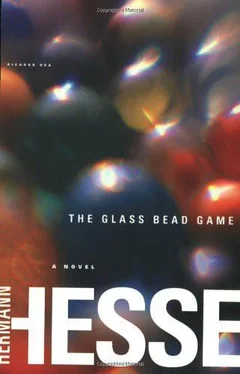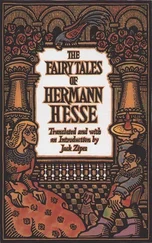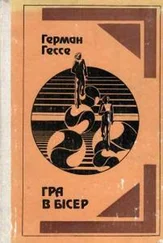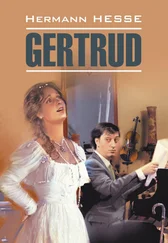For there was also a good deal of lecturing, and we must briefly discuss this somewhat more dignified variant of the feature article. Both specialists and intellectual privateers supplied the middle-class citizens of the age (who were still deeply attached to the notion of culture, although it had long since been robbed of its former meaning) with large numbers of lectures. Such talks were not only in the nature of festival orations for special occasions; there was a frantic trade in them, and they were given in almost incomprehensible quantities. In those days the citizen of a medium-sized town or his wife could at least once a week (in big cities pretty much every night) attend lectures offering theoretical instruction on some subject or other: on works of art, poets, scholars, researchers, world tours. The members of the audience at these lectures remained purely passive, and although some relationship between audience and content, some previous knowledge, preparation, and receptivity were tacitly assumed in most cases nothing of the sort was present. There were entertaining, impassioned, or witty lectures on Goethe, say, in which he would be depicted descending from a post chaise wearing a blue frock-coat to seduce some Strassburg or Wetzlar girl; or on Arabic culture; in all of them a number of fashionable phrases were shaken up like dice in a cup and everyone was delighted if he dimly recognized one or two catchwords. People heard lectures on writers whose works they had never read and never meant to, sometimes accompanied by pictures projected on a screen. At these lectures, as in the feature articles in the newspapers, they struggled through a deluge of isolated cultural facts and fragments of knowledge robbed of all meaning. To put it briefly, they were already on the verge of that dreadful devaluation of the Word which produced, at first in secret and within the narrowest circles, that ascetically heroic counter-movement which soon afterward began to flow visibly and powerfully, and ushered in the new self-discipline and dignity of the human intellect.
It must be granted that many aspects of the intellectual life of that era showed energy and grandeur. We moderns explain its concomitant uncertainty and falseness as a symptom of the horror which seized men when at the end of an era of apparent victory and success they found themselves suddenly confronting a void: great material scarcity, a period of political and military crises, and an accelerating distrust of the intellect itself, of its own virtue and dignity and even of its own existence. Yet that very period, filled though it was with premonitions of doom, was marked by some very fine intellectual achievements, including the beginnings of a science of music of which we are the grateful heirs.
But although it is easy to fit any given segment of the past neatly and intelligibly into the patterns of world history, contemporaries are never able to see their own place in the patterns. Consequently, even as intellectual ambitions and achievements declined rapidly during that period, intellectuals in particular were stricken by terrible doubts and a sense of despair. They had just fully realized (a discovery that had been in the air, here and there, from the time of Nietzsche on) that the youth and the creative period of our culture was over, that old age and twilight had set in. Suddenly everyone felt this and many bluntly expressed this view; it was used to explain many of the alarming signs of the time: the dreary mechanization of life, the profound debasement of morality, the decline of faith among nations, the inauthenticity of art. The “music of decline” had sounded, as in that wonderful Chinese fable; like a thrumming bass on the organ its reverberations faded slowly out over decades; its throbbing could be heard in the corruption of the schools, periodicals, and universities, in melancholia and insanity among those artists and critics who could still be taken seriously; it raged as untrammeled and amateurish overproduction in all the arts. Various attitudes could be taken toward this enemy who had breached the walls and could no longer be exorcised. Some of the best tacitly acknowledged and stoically endured the bitter truth. Some attempted to deny its existence, and thanks to the shoddy thinking of some of the literary prophets of cultural doom, found a good many weak points in their thesis. Moreover, those who took exception to the aforementioned prophets could be sure of a hearing and influence among the bourgeoisie. For the allegation that the culture he had only yesterday been proud to possess was no longer alive, that the education and art he revered could no longer be regarded as genuine education and genuine art, seemed to the bourgeois as brazen and intolerable as the sudden inflations of currency and the revolutions which threatened his accumulated capital.
Another possible immunization against the general mood of doom was cynicism. People went dancing and dismissed all anxiety about the future as old-fashioned folly; people composed heady articles about the approaching end of art, science, and language. In that feuilleton world they had constructed of paper, people postulated the total capitulation of Mind, the bankruptcy of ideas, and pretended to be looking on with cynical calm or bacchantic rapture as not only art, culture, morality, and honesty, but also Europe and “the world” proceeded to their doom. Among the good there prevailed a quietly resigned gloom, among the wicked a malicious pessimism. The fact was that a breakdown of outmoded forms, and a degree of reshuffling both of the world and its morality by means of politics and war, had to take place before the culture itself became capable of real self-analysis and a new organization.
Yet during the decades of transition this culture had not slumbered. Rather, during the very period of its decay and seeming capitulation by the artists, professors, and feature writers, it entered into a phase of intense alertness and self-examination. The medium of this change lay in the consciences of a few individuals. Even during the heyday of the feuilleton there were everywhere individuals and small groups who had resolved to remain faithful to true culture and to devote all their energies to preserving for the future a core of good tradition, discipline, method, and intellectual rigor. We are today ignorant of many details, but in general the process of self-examination, reflection, and conscious resistance to decline seems to have centered mostly in two groups. The cultural conscience of scholars found refuge in the investigations and didactic methods of the history of music, for this discipline was just reaching its height at that time, and even in the midst of the feuilleton world two famous seminaries fostered an exemplary methodology, characterized by care and thoroughness. Moreover, as if destiny wished to smile comfortingly upon this tiny, brave cohort, at this saddest of times there took place that glorious miracle which was in itself pure chance, but which gave the effect of a divine corroboration: the rediscovery of eleven manuscripts of Johann Sebastian Bach, which had been in the keeping of his son Friedemann.
A second focus of resistance to degeneration was the League of Journeyers to the East. The brethren of that League cultivated a spiritual rather than an intellectual discipline. They fostered piety and reverence, and to them we owe important elements in our present form of cultural life and of the Glass Bead Game, in particular the contemplative elements. The Journeyers also contributed to new insights into the nature of our culture and the possibilities of its continuance, not so much by analytical and scholarly work as by their capacity, based on ancient secret exercises, for mystic identification with remote ages and cultural conditions. Among them, for example, were itinerant instrumentalists and minstrels who were said to have the ability to perform the music of earlier epochs with perfect ancient purity. Thus they could play and sing a piece of music from 1600 or 1650 exactly as if all the subsequent modes, refinements, and virtuoso achievements were still unknown. This was an astonishing feat in a period in which the mania for dynamics and gradazione dominated all music-making, when the music itself was almost forgotten in discussions of the conductor’s execution and “conception.” When an orchestra of the Journeyers first publicly performed a suite from the time before Handel completely without crescendi and diminuendi, with the naïveté and chasteness of another age and world, some among the audience are said to have been totally uncomprehending, but others listened with fresh attention and had the impression that they were hearing music for the first time in their lives. In the League’s concert hall between Bremgarten and Morbio, one member built a Bach organ as perfectly as Johann Sebastian Bach would have had it built had he had the means and opportunity. Obeying a principle even then current in the League, the organ builder concealed his name, calling himself Silbermann after his eighteenth-century predecessor.
Читать дальше












